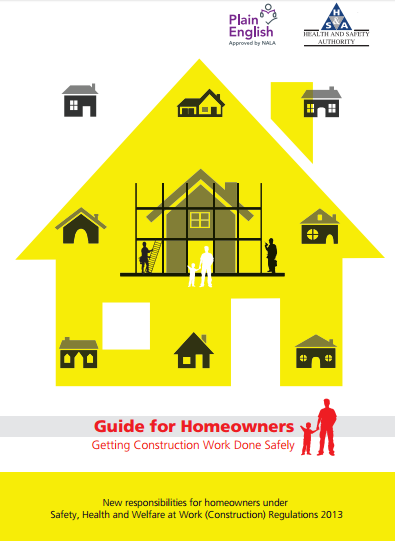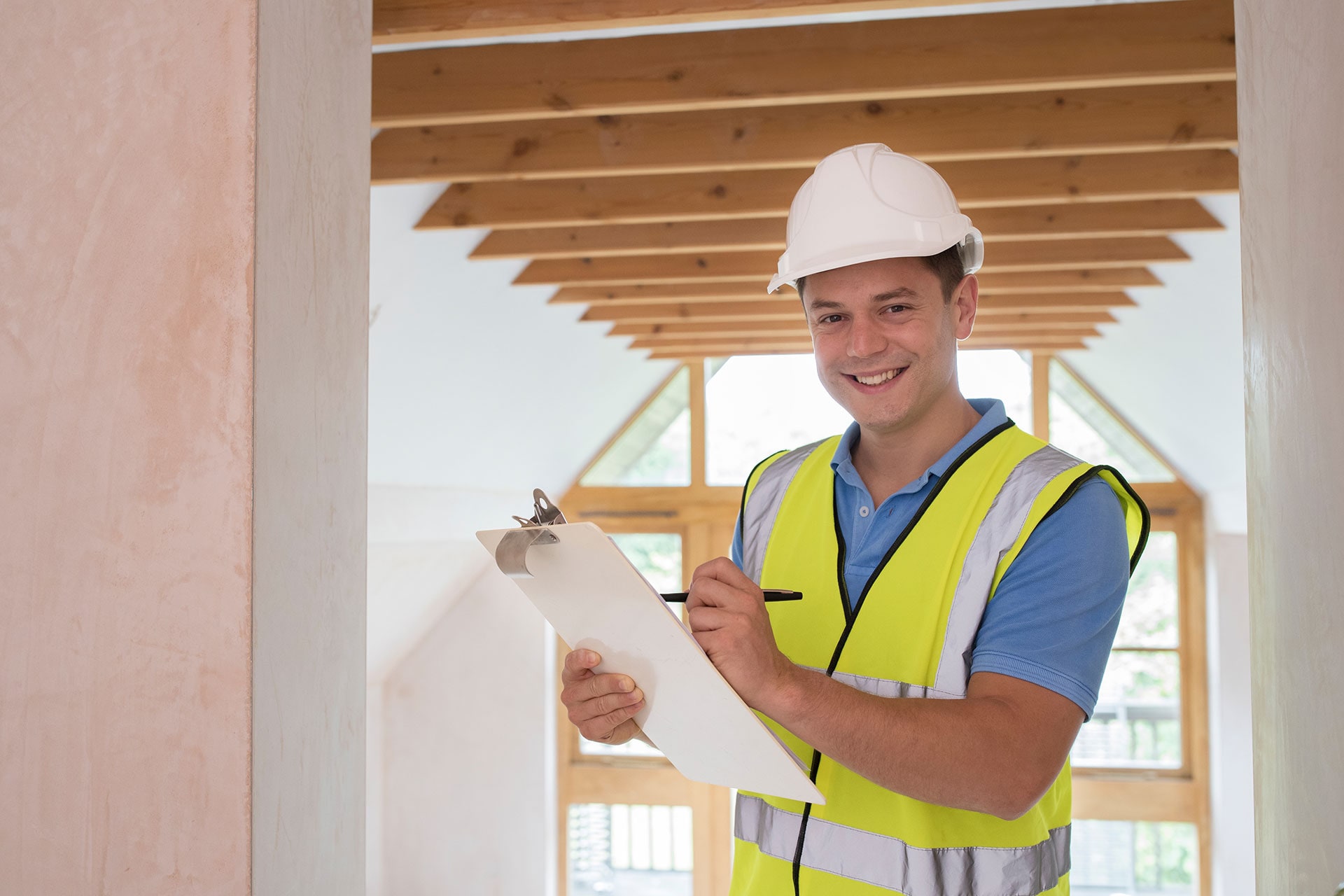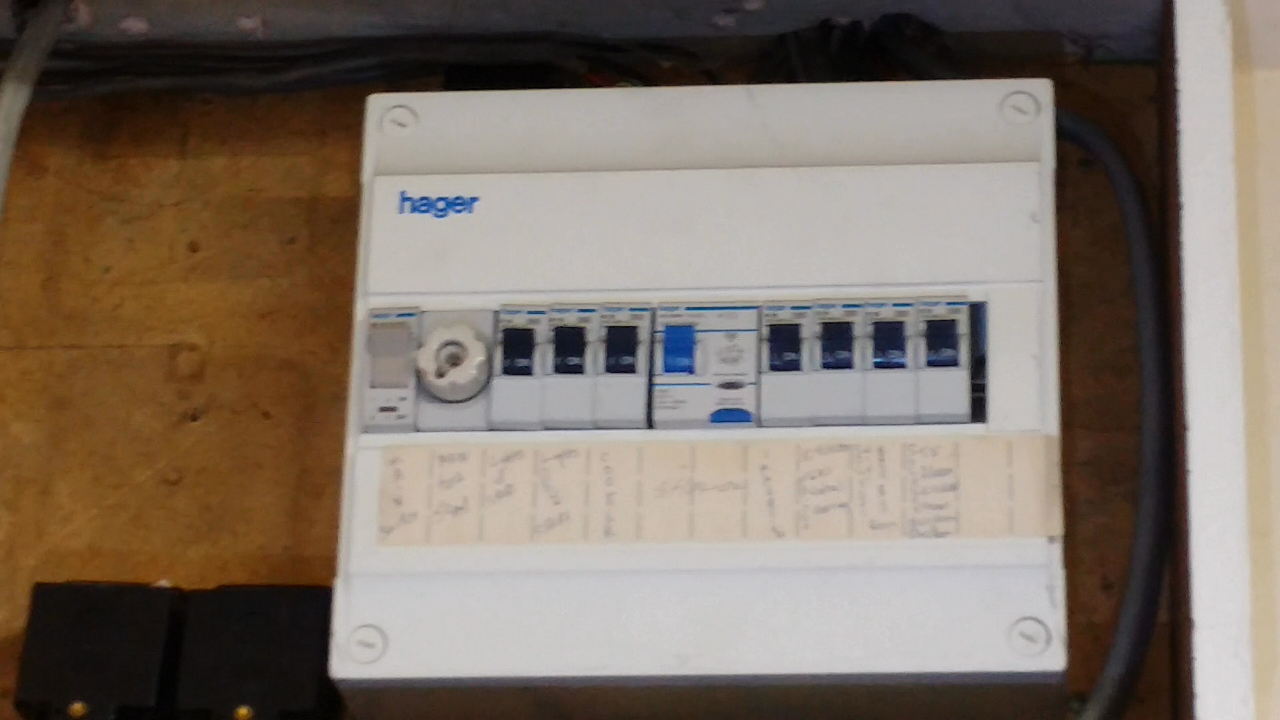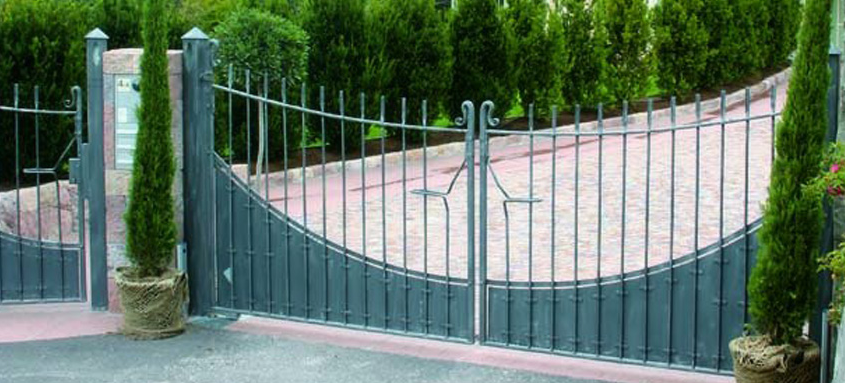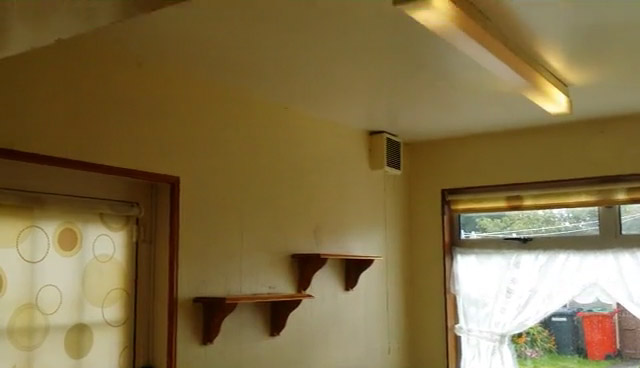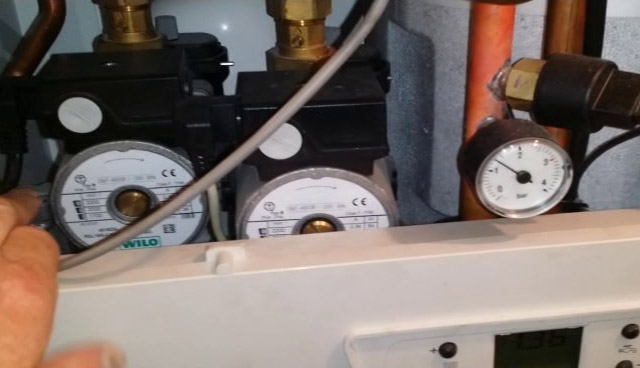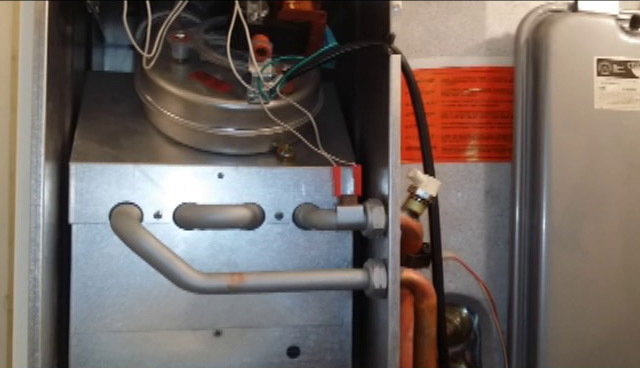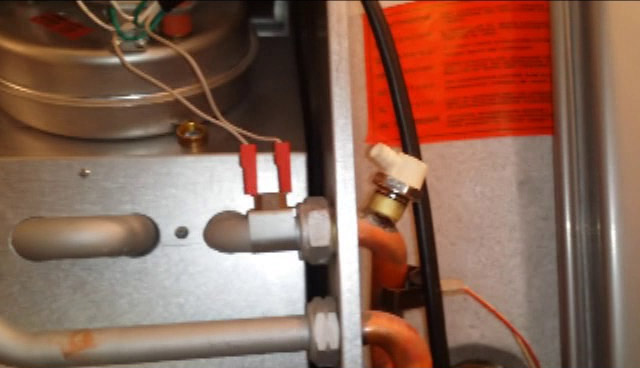Technical guidance
Read moreCategory: knowledge base
Radon general measurement guidance requirements
radonguideline
Read moreSeptic Tank System Check
Maintaining your septic tank system helps to protect your health and your local environment.
Read moreTips for choosing a Surveyor
Pre-purchase building surveys are predominately visual inspections. It is really important that the surveyor you choose to inspect your future home has significant experience in pre-purchase building surveys and carries out building surveys on an ongoing basis. The suggestions below will help you to be confident that have chosen the right company. Your report should […]
Read moreIf you can’t agree with your neighbour on boundary issues, what can you do?
Answer Appoint a professional to advise on both boundary walls and party walls. Property Health Check can offer a number of services which provide information required to enable your solicitor to advice you. Those services are Boundary Checks, provision of Land Registry Compliant Maps and Certificate/Declaration of Identity.
Read moreFire Regulations
[WATU 2]
Read moreJapanese Knotweed
Japanese Knotweed
Read moreOld Wiring Behind New Electrical Fittings
This is an example of a 1950/s property where your typical buyer would assume that the electrical system has been upgraded. However behind the new electric panel and sockets remained the old wiring which is a fire and safety hazard.
Read moreThe pros and cons of automatic gate systems
This interview explores the pros and cons of installing and maintaining an automatic gate system in your property. Interview with Eamonn Munnelly of Auto Entry Systems Ltd Auto Entry Systems Ltd Unit 7 Park West Drive, Park West Industrial Park, Dublin 12 LoCall: 1850 500 500 TEL: +353 1 6264470 FAX: ++353 1 6239307 Transcript […]
Read moreVentilation of Timber-Framed Structures
Ventilation of the external walls of timber-framed construction is necessary so as not to allow moisture build up in the cavity which may cause decay to the structural timbers. External walls of a timber-framed dwelling are normally comprised of a number of layers which can be seen in figure 1. Ventilating the cavity of timber-framed […]
Read moreVentilation in floors
Ventilation in floors, especially suspended timber floors is very important so as not to facilitate the build up of moisture within the floor structure. This moisture build up can cause deterioration not only the timber joists but also any coverings placed over the joists. Ventilation in suspended timber floors can be achieved by installing vents […]
Read moreVentilation in Roofs
Ventilating roof spaces is very important as water vapour can reach this area primarily through gaps in ceilings such as attic hatches or pipes and even to a smaller extent from gaps around light fittings. When this water vapour reaches the attic space it can condense on the underside of the sarking felt or roof […]
Read moreroof types
There are lots of blah blah blah blah blah blah blah blah
Read moreI’m buying a property with an existing rear extension, will I be able to build a new first floor room over the extension?
Answer. Before you consider building over any existing extension you should first get a good idea as the the structural condition of the existing extension. If there is any cracking or settlement in the existing extension it would be advisable to be extremely cautious before building over the extension. If the extension cannot support it’s […]
Read moreI upgraded an old period house which had a dry tiled basement floor and some dampness in the walls and after renovation I now have dampness in the floor and mold forming on the carpet.
Answer. Most older houses had no or an inadequate damp proofing under the masonry floors and walls in the basement. When low levels of rising damp rises up through the basement floors the moisture would evaporate faster then the rate of the rising damp and the surface of the floor would remain dry, However, in […]
Read moreWhen my neighbour lights a fire in his fireplace, I get smoke coming into my house?
Answer. While a crack or hole in the flue is possible it is not the likely reason for smoke entering your property. Most modern houses and modernised older houses are fairly airtight, This in conjunction with mechanical kitchen and bathroom extractor vents results in negative air pressure with some properties. This results in outside air […]
Read moreI’m building an extension to the back of my mid terraced house and there is no storm water drain located in my garden, can I direct the rain water into the foul drain?
Answer. No, building regulations require that rain water and foul water are kept separate and that only foul water can go into foul water drains and likewise for rain water drains. The problem that you have is common in that about 50% of mid terrace houses, in that there is no rain water drain located […]
Read moreI am buying a 1890’s period house, will I need to replace the drains.
Answer. The simple answer is to make sure you pay particular attention to the drains before you purchase. In a lot of cases the old drains may actual be in a reasonable functional condition and no replacement would be necessary in the short to medium term. Fairly often in older properties there would be very […]
Read moreI have a sewer smell in my house and can’t find its location?
Answer. Sewer odors can permeate into house in numerous ways. The first thing to do is to fix the most obvious things that are outlined below. One of the most common reasons for sewer smells in dried out trays under sinks, showers, baths and toilets drying out and letting sewer odors back into the property. […]
Read moreDo I need planning permission to change and remove interior walls in my property?
Question, Do I need planning permission to change and remove interior walls in my property? Answer. In most cases planning permission is not required and most interior alterations qualify as an exempt development defined under Section 4(1)(h) under the Planning & Development Act 2000. However, the property must not be a protected structure and be […]
Read moreDo I need planning permission to convert my garage to a kitchen, playroom or bedroom?
Answer. In most cases planning permission is not required and most garage conversions qualify as an exempt development defined under Section 4(1)(h) under the Planning & Development Act 2000. However, the garage must firstly be attached to the dwelling house and already be planning complainant as a garage. The garage conversion cannot be used as […]
Read moreDo I need planning permission for an attic conversion?
Answer. In most cases planning permission is not required and most attic conversions qualify as an exempt development defined under Section 4(1)(h) under the Planning & Development Act 2000. However, while most attic conversion can be converted to storage use without the need to first obtain planning permission, the majority of attic conversions will not meet […]
Read moreWhat type of rear extensions are exempt developments?
Answer. Rear extensions which are exempt development are defined under Class One of the Second Schedule of The Local Government (Planning and Development) Regulations 2001. The area of the extension must not be greater than 40 meters squared, including all other extensions. The back garden must not be reduced below 25 meters squared. The walls […]
Read moreDo older extensions to properties require a certificate for bye-law approval?
Answer. There is an amnesty under subsection 22(7) of the Building Control Act 1990 as far as buildings which do not comply with the bye laws are concerned provided development occurred prior to 13th December 1989. Unless the building control authority served notice between 1st June 1992 and 1st December 1992 on the owner of a building that […]
Read moreNeighbour wanting to build on boundary wall
Question My neighbours of some twenty years whom we have a good relationship with have recently approached us about building an extension onto the back of their house. We also have an extension which we completed 10 years ago which is built just inside the existing shared boundary wall dividing both our properties. My neighbour […]
Read moreMore concerns about pyrite in houses?
There are believed to be up to of 15,000 properties in Ireland which are contaminated with pyrite backfill. We hope that our website will help you find the information you require concerning all aspects of pyrite damage to houses. When damage occurs as a result of pyrite under the floors it can be a very stressful time. […]
Read moreTesting for Pyrite in Backfill
Property Health Check does not carry out laboratory testing to confirm that your house is free of pyrite. Golders based in Naas, Co Kildare are perhaps the the best known pyrite testing companies in Ireland. We certainly don’t want to be the bearer of bad news, but if your house has pyrite your test results will […]
Read morePyrite damage in most cases can be more costly to repair then settlement or cracking in walls?
The damage that pyrite back-fill can cause is an expensive defect to remedy and stressful to the property owner. Pyrite damage in most cases can be more costly to repair then settlement or cracking in walls so it is important that pyrite damage is not incorrectly diagnosed during the initial structural survey. The percentage or concentration of pyrite in […]
Read moreShould you consider getting a pyrite test carried out before you buy a property?
Answer. When you are thinking about buying or selling a property, should you consider getting a pyrite test carried out before you sell or purchase?. In most cases the cracks that are visible in walls and floors in your potential new house are the result of natural drying or poor building practices and are not […]
Read moreDoes rainfall affect the rate of Pyrite expansion?
Answer. Is the total amount of rain fall in Ireland speeding up the rate of pyrite expansion under our houses from what is happening in Canada. There is a mis-conception in the building industry and by some building professionals that the rate of pyrite expansion of contaminated backfill should show up more quickly or become […]
Read moreBuying a Home with Suspected Pyrite Damage
Found your ideal home. Now that you have found the ideal home, you can get ready to get all your contracts signed, organise your mortgage and look forward to moving into your new home. You have agreed a price with the estate agent and decide that its better to be safe then sorry and organise […]
Read moreWhat type of home buyers survey do I need?
Answer. Different types of building surveys Visual survey Home buyers survey Residential survey Engineers report Building survey Pre-purchase house survey Structural building engineer report Condition report Property survey Structural survey Full structural survey Note, it is important to be aware that some “full structural survey reports” may actually contain less information then a “visual survey”. The different […]
Read moreSample of a Property Survey Check list.
Property Survey Check List The purpose of our “How to Survey A Property Checklist” is to assist both sellers and buyers of properties to identify defects that the building surveyor will be looking for. If you have the skills and experience it may also save you the cost of a building survey. This guide will help […]
Read moreWhat Sellers and Buyers should know when organizing a building survey
Answer. This post will assist buyers and sellers of properties identify defects and other potential issues that the building surveyor will be looking for when your property is surveyed. If certain defects can be identified and repaired before the house is placed on the market for sale, it should prevent renegotiation taking place at a […]
Read moreWhat are some of the common types of structural defects in older houses that are expensive to repair?
Answer. General Structure. The structure is by far the most important part of a building survey. In many instances, structural problems are expensive to repair. The structural part of the building survey involves examining all the visible parts of the exterior, the roof, interior walls, ceilings, floors, attic spaces, doors and window frames. Particular attention […]
Read moreShould I check the roof of my property after a storm?
Answer. One of the most common reasons for insurance claims in Ireland is as of damage caused by a storm. From experience we find that typical damage cause by a storm such as lifted roof tiles and roof flashing, may not be immediately visible to the homeowner. The damage may only becomes visible from the […]
Read moreDo plumbing leaks result in hidden damage to your home?
Answer. One of the most common insurance claims made by home owners is for burst water pipes. Last year in Ireland there where thousands of burst pipe and water leak claims resulting in tens of millions in settlement claims. During cold weather, if water pipes are not insulated adequately the water inside the pipe will freeze. […]
Read moreWhat are the common terms used in a Home Insurance Policy?
Answer. Note, You should read your insurance policy document in full, different insurance companies may have different definitions then the ones listed below. An understanding of the terms used by insurance companies is a great starting point for unravelling your insurance policy. This insurance terms glossary contains some of the most common terms. Accident An […]
Read moreWhat should you expect from your building surveyor?
Answer. What To Expect: Many home buyers sometimes buy their home on impulse. Experienced building surveyors can help home buyers avoid buyers remorse by reporting on building defects and problems before the home buyer finds them after closing. All detailed surveys should provide clients with the tools they need to make an educated choice regarding […]
Read moreWhat do I need to know about the roof over my property?
Answer. The main requirements of a roof is to prevent moisture penetration and to transfer the roof loads to load bearing walls of the property. Roofing is the water resistant material what protects the structure from being damaged by water. The term roof is usually broader and includes the roofing and the supporting structure. With […]
Read moreWhat is Radon?
Answer Radon is a radioactive gas which occurs naturally in the ground from the decay of uranium present in rocks and soils. It is estimated that the effects of exposure to radon gas kills about 200 people a year in Ireland. You cannot smell, see or taste radon gas. Radon can only be measured with […]
Read moreWhy is radon a problem?
Answer It is estimated that the effects of exposure to radon gas kills about 200 people a year in Ireland. You cannot smell, see or taste radon gas. Radon can only be measured with special equipment. Radon is a radioactive gas which produces minuscule radioactive dust particles. When breathed into the lungs, the radon gas […]
Read moreFrequently asked questions about pyrite in homes
Answer Pyrite in your home The damage that pyrite can cause is stressful to the home owner and an expensive problem to remedy. The possibility that pyrite may have been used in a small number of homes in a development can have a very negative affect on all property values in that development. The presence […]
Read moreBeginning your investigation on why there are cracks in the walls of your property.
When a Building Surveyor reports on a crack in a wall he is basing his opinion on what he can visually see at the time of inspection. Cracks can open and close over a season and a minor crack that is now visible to the building surveyor may be in existence since the property was […]
Read moreWhat if the surveyor finds asbestos during his building survey?
Answer Deaths and serious illnesses, normally results from inhaling the fibers in building asbestos materials. Asbestos use in building materials was to strengthen structures and improve fire resistance and was commonly used in houses. Asbestos related deaths usually followed long-term exposure to the raw material. The critical factor is whether it is exposed or not and whether you come into […]
Read moreFAQ’s about septic tanks?
Answer How Septic Tanks Work Tanks are designed to allow waste liquids to flow through the tank and enter a percolation area without causing damage to the environment. Waste waters enter the tank and the solids to sink to the bottom. Smaller particles float to the surface creating a scum. Most of the waste decomposes […]
Read more
